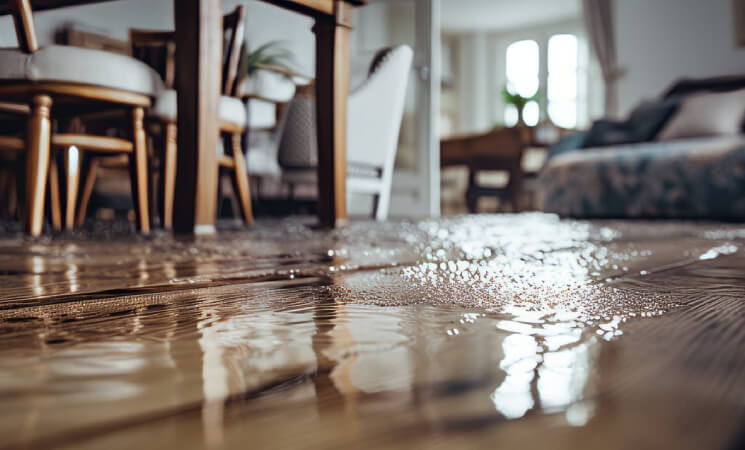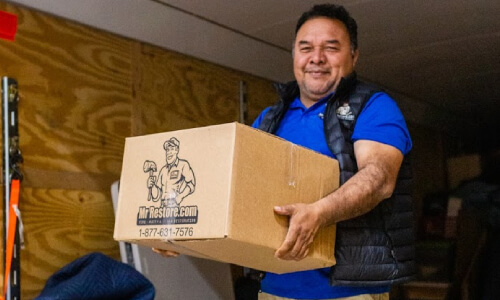Environmental Impact of Traditional Water Repairs
Traditional water repair methods often involve materials and processes that can harm the environment. The use of harsh chemicals, excessive water consumption, and improper disposal of waste can lead to pollution, resource depletion, and ecological damage. Recognizing these impacts is the first step toward adopting more sustainable practices.
Benefits of Eco-Friendly Water Repairs
Eco-friendly water repairs offer numerous benefits, including reduced environmental impact, improved health and safety, cost savings, and enhanced property value. By choosing sustainable solutions, McKinney residents can contribute to environmental conservation while ensuring their homes and businesses are resilient and healthy.
Sustainable Practices in Water Repairs
Water Conservation
Water conservation is a cornerstone of eco-friendly water repairs. Techniques such as leak detection and repair, efficient water usage, and the installation of water-saving fixtures can significantly reduce water waste. In McKinney, where water scarcity can be a concern, these practices are especially important.
- Leak Detection and Repair: Early detection and repair of leaks can prevent water waste and reduce the risk of water damage. Advanced leak detection technologies, such as acoustic sensors and infrared cameras, allow for precise identification and repair of leaks.
- Efficient Water Usage: Implementing water-efficient practices, such as using low-flow fixtures and appliances, can reduce water consumption without compromising functionality. Additionally, educating residents about water conservation can lead to more mindful water usage.
Sustainable Materials
Using sustainable materials in water repairs minimizes environmental impact and promotes healthier living environments. Eco-friendly materials are often sourced responsibly, have low toxicity, and are designed to last longer, reducing the need for frequent replacements.
- Recycled and Recyclable Materials: Opting for materials made from recycled content or those that can be recycled at the end of their life cycle reduces waste and conserves resources. Examples include recycled metal pipes and eco-friendly insulation.
- Low-VOC Sealants and Adhesives: Volatile organic compounds (VOCs) in traditional sealants and adhesives can contribute to indoor air pollution and health issues. Low-VOC alternatives are safer for both the environment and human health.
Energy Efficiency
Energy-efficient practices in water repairs help reduce the carbon footprint of homes and businesses. By optimizing energy usage, residents can lower utility bills and contribute to overall energy conservation efforts.
- Energy-Efficient Water Heaters: Installing energy-efficient water heaters, such as tankless or solar water heaters, can reduce energy consumption and greenhouse gas emissions. These systems provide hot water on demand and eliminate the energy waste associated with traditional storage water heaters.
- Insulation and Weatherization: Proper insulation and weatherization of pipes and water systems prevent heat loss, ensuring efficient operation and reducing the need for excessive energy use.
Innovative Technologies for Eco-Friendly Water Repairs
Advanced Leak Detection Systems
Modern leak detection systems use cutting-edge technology to identify leaks quickly and accurately. These systems can monitor water flow in real-time, alerting homeowners to potential issues before they escalate into major problems.
- Smart Water Sensors: Smart water sensors can be installed throughout a property to detect leaks and monitor water usage. These sensors connect to a central hub or smartphone app, providing real-time alerts and data on water consumption.
- Acoustic Leak Detection: Acoustic leak detection involves using specialized microphones to listen for the sounds of water escaping from pipes. This non-invasive method allows for precise leak identification without damaging property.
Green Plumbing Solutions
Green plumbing solutions focus on reducing water waste and improving efficiency. These innovations include water-efficient fixtures, rainwater harvesting systems, and greywater recycling.
- Low-Flow Fixtures: Low-flow faucets, showerheads, and toilets use less water without compromising performance. These fixtures are designed to reduce water consumption while maintaining adequate pressure and flow.
- Rainwater Harvesting: Rainwater harvesting systems collect and store rainwater for various uses, such as irrigation, flushing toilets, and washing clothes. This reduces reliance on municipal water supplies and promotes sustainable water management.
- Greywater Recycling: Greywater recycling systems capture and treat wastewater from sinks, showers, and washing machines for reuse in non-potable applications. This reduces the demand for fresh water and lowers wastewater discharge.
Non-Toxic and Biodegradable Products
Using non-toxic and biodegradable products in water repairs minimizes the release of harmful chemicals into the environment. These products are designed to break down naturally without causing pollution.
- Eco-Friendly Cleaners: Traditional cleaning products can contain harmful chemicals that pollute water sources. Eco-friendly cleaners use natural ingredients that are safe for the environment and effective in removing contaminants.
- Biodegradable Sealants and Lubricants: Biodegradable sealants and lubricants break down naturally over time, reducing the risk of environmental contamination. These products are suitable for various water repair applications, including sealing leaks and lubricating pipes.
Case Studies: Eco-Friendly Water Repairs in McKinney
Residential Success Story
A McKinney homeowner faced persistent water leaks and high utility bills. By opting for eco-friendly water repairs, they achieved significant improvements in both water and energy efficiency. The project included installing smart water sensors, low-flow fixtures, and a rainwater harvesting system. As a result, the homeowner reduced water consumption by 30% and energy costs by 20%, while also contributing to environmental conservation.
Commercial Success Story
A local business in McKinney implemented green plumbing solutions to address water waste and improve sustainability. The project involved upgrading to energy-efficient water heaters, installing greywater recycling systems, and using eco-friendly materials. These changes not only enhanced the building’s environmental performance but also resulted in cost savings and improved public image.
Practical Steps for Homeowners
Regular Maintenance
Regular maintenance is essential for preventing water issues and ensuring the longevity of eco-friendly repairs. Homeowners should schedule routine inspections, promptly address leaks, and replace outdated fixtures with water-efficient alternatives.
- Inspection Schedule: Conducting annual or bi-annual inspections of plumbing systems can help identify potential issues early. Homeowners should check for signs of leaks, corrosion, and inefficient fixtures.
- Proactive Repairs: Addressing minor issues before they become major problems can prevent water waste and reduce repair costs. This includes fixing small leaks, replacing worn-out parts, and upgrading to more efficient systems.
DIY Eco-Friendly Repairs
For homeowners who prefer a hands-on approach, there are several DIY eco-friendly repair options available. These include using natural cleaners, installing water-saving devices, and practicing water conservation habits.
- Natural Cleaners: Homemade cleaning solutions made from ingredients like vinegar, baking soda, and lemon can effectively clean plumbing fixtures without harming the environment.
- Water-Saving Devices: Installing simple devices like faucet aerators, toilet tank bags, and shower timers can reduce water usage and promote conservation.
- Water Conservation Habits: Adopting water-saving habits, such as turning off the tap while brushing teeth, taking shorter showers, and fixing leaks promptly, can make a significant difference in overall water consumption.
Choosing Eco-Friendly Contractors
When professional assistance is needed, selecting eco-friendly contractors is crucial. Look for contractors who prioritize sustainability, use green materials, and implement environmentally responsible practices.
- Research and Referrals: Research local contractors with a focus on sustainability and ask for referrals from friends or neighbors who have had positive experiences with eco-friendly repairs.
- Certifications and Credentials: Check for certifications and credentials that indicate a contractor’s commitment to eco-friendly practices, such as Green Plumbers USA or LEED accreditation.
Eco-friendly water repairs in McKinney represent a vital step toward sustainable living. By embracing water conservation, sustainable materials, energy efficiency, and innovative technologies, homeowners and businesses can reduce their environmental impact and contribute to a greener future. The benefits of eco-friendly repairs extend beyond environmental conservation, offering improved health, safety, and cost savings. As McKinney continues to grow and evolve, adopting sustainable practices in water repairs will play a crucial role in preserving the city’s natural beauty and ensuring a healthy, vibrant community for generations to come.






